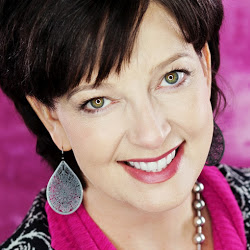Playing Taps and Doubting God
Today’s guest post comes from Jennifer Lee.
*****
I was a freshman in high school, standing with my head bowed behind the cemetery shed, where the maintenance guys stored the lawnmower. It was noon on a late-winter day, and I waited for my cue, a military gun salute.
I leaned against the weather-beaten wooden planks – hard and cold like my waning faith – while holding a silver trumpet. The family huddled against the wind on velvet-covered folding chairs, under a blue tarp, while the preacher read from a pocket-sized book of last rites.
The uniformed veterans lifted their guns, clicked and fired. Clicked and fired. Clicked and fired.
And I — the lone bugler — stepped from the behind the shed. I lifted the trumpet to my lips to play “Taps” in honor of the middle-aged man in the steel box.
The notes rang out, mingling with pained and muffled cries. And I felt hollow on the inside.
Fourteen years old, and already I didn’t believe there was life beyond the grave. Not for me, or the man in the coffin, or for the hundreds of other sons and daughters already buried here in my hometown cemetery in Iowa — with names like Anderson and Benson and Larson. These were the people I saw in the pews of my church on Sunday mornings. Hear me now: I wanted to believe that there was something More in the great beyond. But it all seemed so … fairy-tale-ish. So foolish.
“Taps,” a song that means “lights out,” was the melodic and literal end of all things. That’s how I saw it anyhow.
Death always exposed my doubt. And from a young age, it came around frequently, like a specter haunting our little Iowa town, robbing me of my favorite people.
When townfolk died, Mom would walk us down the block to the old Sliefert funeral chapel, where our old friends were laid out in velvet-lined boxes. I peered over the edges of their caskets, and when I thought no one was looking, I would reach a hand in to feel the waxy coldness of death. I had once heard that a dead body could actually make a jerking motion, or that its eyes might suddenly fly open, so I’d watch like a tiny hawk, waiting for some macabre spectacle to unfold before me.
Death both repelled and attracted me – the same way I felt when watching horror movies the week before Halloween.
On summer days, my little brother and I would visit the cemetery after the diggers finished making a gaping hole in the earth — before the mourners showed up. Curiosity drew us, and we’d lay on our stomachs giggling nervously as we looked into six-feet-deep holes – dirty holes that swallowed up bodies and precious parts of my faith.
As I grew older, the funeral home director started asking if I’d play “Taps” at the ceremonies of war heroes. The school principal always let me go. He thought it was a “good community service.” But sometimes, I wished he wouldn’t. Sometimes, I’d rather have done algebra, instead of graveside service.
In the cemetery, there was no escaping my own inevitable death. Or my own suffocating doubt.
I played the song — time after time — and it felt like these were the last bitter notes on the end of life.
Casket closed. Book closed.
But right there in the pain of doubt — at the edge of opened graves – I took important first steps in my discovery of life and death and faith in God. I realized that doubt can actually be a gift. No kidding, a GIFT.
It would be years and years later, but I began to ask questions that, ultimately, led to a few important answers.
Here’s the deal: I was a modern-day Thomas. I doubted the very existence of God for much of my life — despite the fact that I grew up among believers, many of whom I led home with a silver trumpet. If there really was a God, I was sure my doubts would doom me.
So I found sweet relief, I tell you, when I found these words in the study notes of my Bible: “Silent doubts rarely find answers.”
That meant it was OK to ask, to doubt, to fumble around for a few answers. It meant that my doubts were not a curse, but a step toward a God who invites us to get close enough to touch a Savior’s scars. He doesn’t turn His back on modern-day Thomases, but invites us closer.
And doubt? Well, it isn’t meant to be a place of permanent residence. Not for me, anyway. For me, it was the place from which I could grow, stepping out from behind the weather-worn shack to play a different song.
*****
 About the author: Jennifer is a former news reporter who is passionate about sharing the Good News through story.
About the author: Jennifer is a former news reporter who is passionate about sharing the Good News through story.
She blogs about grace and God’s glory at www.JenniferDukesLee.com. She is a contributing
editor at www.TheHighCalling.org.
You can find her on Facebook here. Soon, her words will make their way into her debut nonfiction Christian book (Tyndale Momentum).
